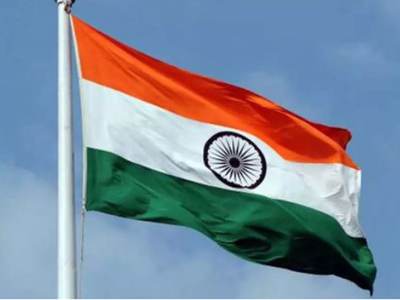India looks to change global ‘naysayer’ image
印度希望改变在全世界“唱反调”的形象。
NEW DELHI: A growing part of India’s foreign policy these days is for New Delhi to work hard to change the way the country is perceived around the world. In key areas of multilateral engagement like trade and environment, India is famous as the “naysayer” and the “country that loves to say no”.
新德里:如今,印度外交政策中越来越多的部分是为了通过新德里来努力改变全世界对这个国家的看法。在贸易和环境等多边接触的关键领域,印度是以“唱反调”和“爱说不”而闻名。

Countries negotiating the Regional Comprehensive Economic Partnership (RCEP) have expressed frustration at India’s negotiating attitude, some going as far as to wish India was out of it.
区域全面经济伙伴关系(RCEP)的谈判国家对印度的谈判态度感到失望,有些国家甚至希望印度能够退出该协议组织。
As India plays host to commerce ministers of over 40 countries on Monday and Tuesday in New Delhi in a “mini-ministerial”, the primary idea, top government officials said, was to change India’s image — from the “no” country to one that was open to engaging others on old and new issues, becoming a facilitator for discussions leading to a consensus, being a problem solver. All of these are new areas for India’s trade officials who have earned their spurs being the international obdurate.
本周一和周二,印度会在新德里举行的“小型部长”活动中接待40多个国家的商务部长。政府高级官员说到,这次的主要构想是,将印度的国家形象从“不”改变为印度乐于与他国讨论新旧问题,通过担任问题讨论的调解人的角色,促成共识,从而成为解决问题的能手。所有这些对印度贸易官员来说都是一个新的领域,因为他们的顽固不化早已是国际有名的。
In April, India will host the International Energy Forum, again a ministerial meeting with similar intentions — to bring producers, consumers, technology and climate change experts together for what is billed as a “forward-looking” conversation on the future of global energy security.
今年4月,印度将主办“国际能源论坛”(International Energy Forum),再次召开类似意图的部长级会议,目的是让生产者、消费者、技术和气候变化专家齐聚一堂,就全球能源安全的前景进行“前瞻性”的对话
At the Buenos Aires’ ministerial conference, India’s approach drew a lot of criticism. Officials said it wasn’t as if India was in the wrong, it was the “negatively aggressive” negotiating stance that was described as being counter-productive.
在布宜诺斯艾利斯的部长级会议上,印度的做法招到了许多的批评。官员们表示,这并不是说印度错了,而是“消极进取”的谈判立场,被形容为适得其反。
India wants permanent solutions for the food security issues that were partially resolved with an India-US agreement back in 2014, but until that is done India refused to talk about other emerging issues that have global relevance, like e-commerce, reinforcing its image of being the neighbourhood recalcitrant.
印度希望能永久解决粮食安全问题,2014年印度与美国达成协议后,部分解决了这一问题。但在此之前,印度拒绝谈论其他与全球相关的新兴问题,比如电子商务,此强化了其作为邻国顽固派的形象。
Meanwhile, the US has blocked consensus on populating the dispute settlement body. With trade wars looming on the horizon, junking the WTO is not believed to be in India’s interest.
与此同时,美国已经阻止了关于扩充争端解决机构的共识。随着贸易战争即将来临,退出世贸组织并不符合印度的利益。
It is in this backdrop that New Delhi decided to host the mini-ministerial — it would provide a platform for commerce and trade ministers to talk about the important issues in an informal setting. Any convergence of views would then be taken up by negotiators in Geneva. “We’re trying to be a facilitator, a problem-solver,” said an official involved in the meeting.
正是在这种背景下,新德里决定主办小型部长级会议——它将为商务和贸易部长们提供一个平台,让他们在非正式场合谈论重要问题。届时,日内瓦的谈判者将会采纳一致的观点。一位参与此次会议的官员表示:“我们正在努力成为一个调解人,一个问题解决者。”
It will not change India’s trade strategy, but it hopes to use the event to persuade more countries to its side.The IEF in April will “focus on how global shifts, transition policies and new technologies influence market stability and future investment”, energy minister Dharmendra Pradhan said this week, introducing the forum to envoys of different countries.
此次会议不会改变印度的贸易战略,但希望通过这次事件来说服更多的国家支持印度。能源部长达门德拉•普拉丹(Dharmendra Pradhan)本周表示,4月份的国际能源论坛将“聚焦于全球变化、过渡政策和新技术如何影响市场稳定和未来投资”,并将论坛介绍给不同国家的特使。
印度时报网友评论:
译文来源:三泰虎 http://www.santaihu.com/44417.html
Anonymous:
big stride on world stage ... kudos to modi
在世界舞台上迈出一大步……向莫迪致敬
 印度将推动“全民医疗”? 莫迪被印
印度将推动“全民医疗”? 莫迪被印 尊重妇女是我们的文化,莫迪总理:一个
尊重妇女是我们的文化,莫迪总理:一个 莫迪预计印度经济2025年将达到5万
莫迪预计印度经济2025年将达到5万 印度将建首条高铁 莫迪:反对者可“
印度将建首条高铁 莫迪:反对者可“